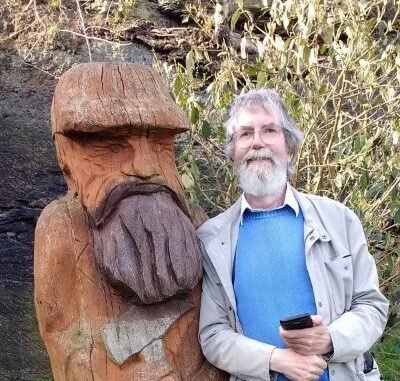
Mike, our Society’s webmaster (and so much more) sadly passed away this year with little warning. There are not enough words to describe everything he did, not just for Gateacre but for Wavertree and the wider Liverpool historical and environmental circles. Whilst we have begun our journey on a new website layout, it cannot be stressed enough that this website is just one of Mike’s lifelong works, and it is our mission to keep his work available in its entirety for future generations to view.
Born in London, Mike Chitty moved to Liverpool to work for Merseyside County Council. When MCC was abolished he went to work for Sefton Metropolitan Borough Council in the Planning Deprtment where he stayed until his retirement in 2008. He helped found the Wavertree Society and after moving to Gateacre joined the Gateacre Society, soon becoming a key committee member taking on many roles essential for the smooth running of the Society. During the Covid pandemic he organised zoom meetings for the committee and members’ talks, which kept the Society going. With his work background and special interest in environmental matters he monitored local planning applications and led our discussions and comments following up with detailed and knowledgeable letters to Liverpool City Council.
He was one of the first Blue Badge guides and had a detailed knowledge of all local listed buildings. He successfully led opposition to plans for Sandown Hall and to an inner ring road which would have involved demolition of a number of Georgian Buildings. He was key in the restitution of the public right of way from Acrefield Road to Woolton Park.
Mike enjoyed good health never having spent time in hospital until he was admitted for an intestinal operation. Very sadly after developing pneumonia he died on June 18th. Until this sudden totally unexpected downturn Mike was actively sending emails from his hospital bed and planning for the next Committee meeting.
Needless to say Mike’s death was a huge and tragic loss to his family and to the two environmental societies in which he played such an important part.

Leave a Reply